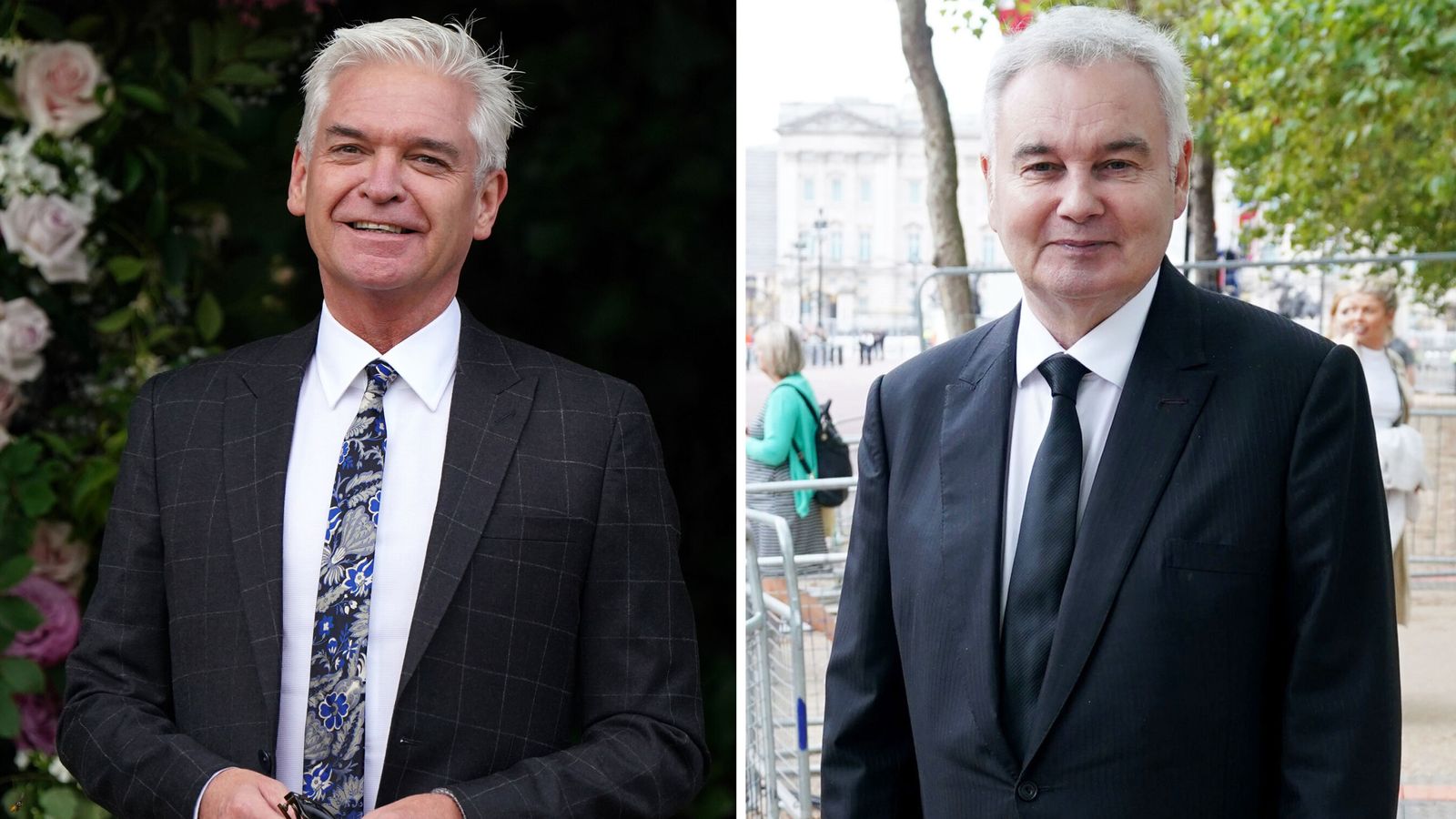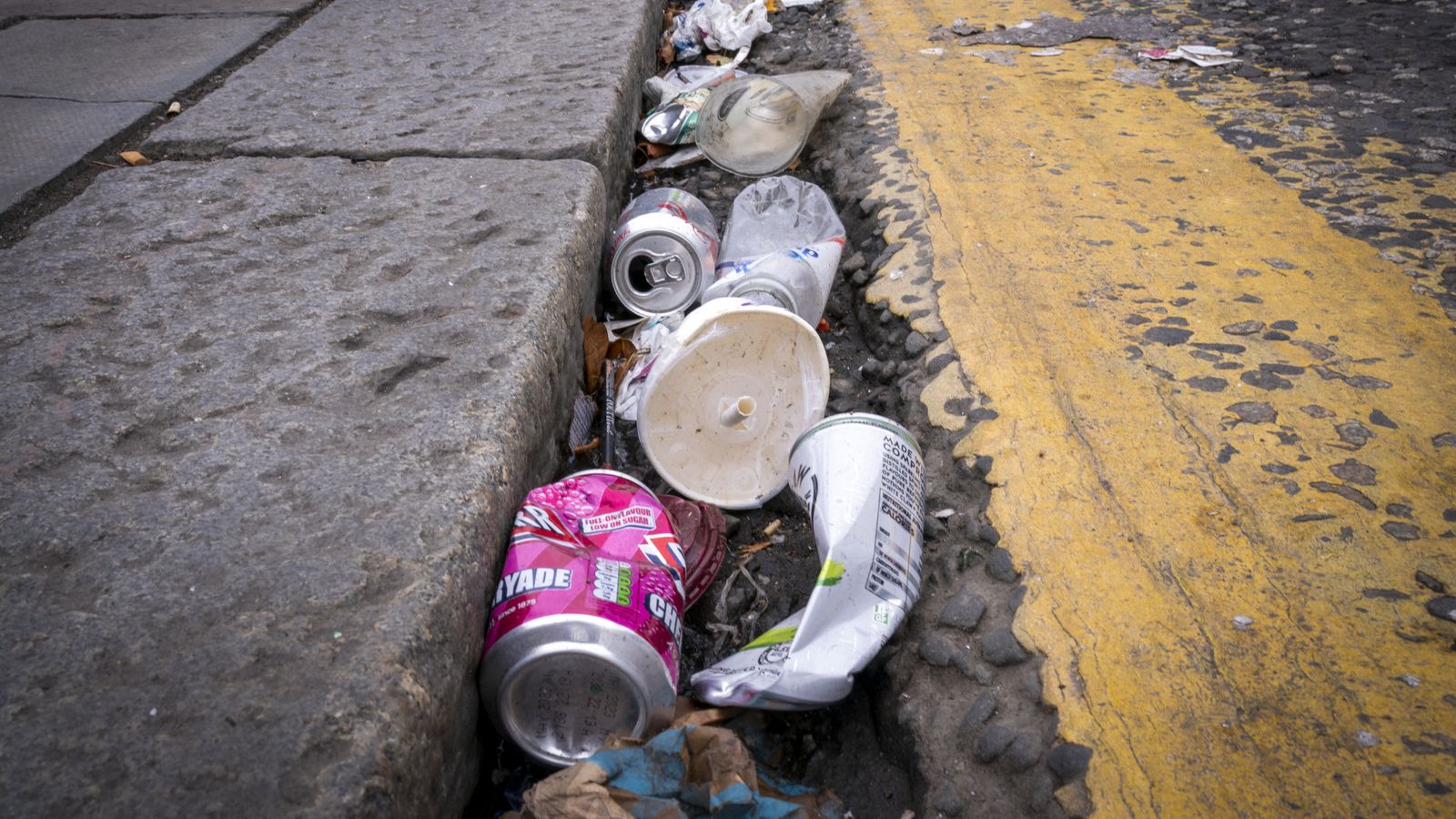Starmer unveils plan to stop illegal migration crisis ‘at source’


The prime minister has announced £84m of funding for African and Middle Eastern countries in an attempt to tackle the migration crisis “at source”.
Speaking in a press conference at Blenheim Palace, where a raft of leaders have been meeting for a European Political Community (EPC) summit, Sir Keir Starmer said the money would go towards health and education initiatives, as well as humanitarian support, to address the reasons people flee their homes in the first place.
He said the efforts would be a “vital part of gripping the migration crisis” as issues in those countries “echo at home [and] the effects play out on our streets,” adding: “In a dangerous world, we serve no one and solve nothing by turning inward.”
Politics live: Starmer welcomes European leaders at ‘reset’ summit
A breakdown of the funding, which will all come from the existing overseas aid budget, showed there would be:
• £13m to expand “migration for development” programmes in North and East Africa;
• £21m in multilateral support for key host and transit countries, including Libya, Ethiopia, Egypt, and Chad;
• £26m for programmes across the Middle East and wider region to support Syrian refugees;
• £24m in direct funding to support communities in Sudan, Chad, and Ethiopia.
An additional £2m will go towards supporting the International Organisation for Migration’s projects in Libya.
Sir Keir said Thursday’s EPC meeting had seen the government “resetting our approach” and “deepening our cooperation” with European partners in order to tackle illegal migration, including increasing the UK’s presence at Europol, agreeing new cooperation arrangements with Slovenia and Slovakia on tackling organised crime, and a commitment to share more intelligence “to put the gangs out of business”.
He said: “We are going to smash the gangs, break their business model and secure our borders.”
Advertisement
And in an apparent dig at the previous Conservative government’s Rwanda deportation scheme – scrapped by Labour after winning the election – he added: “And we’ll do this, not by committing taxpayer money to gimmicks, but with practical solutions that are in line with international law.”
Referring to his time as director of public prosecutions, the prime minister said he had seen “the work that can be done across borders to bring terrorists to justice and break up their networks”, adding: “I simply do not accept that we can’t do the same with organised migration crime.
“We can only make progress on the issues that so many people care about – like illegal migration and national security – if you have the maturity and leadership to reach out to our European friends.”

‘We’ve wasted time’
Sir Keir is under pressure to get a grip on Channel crossings, with more than 14,000 people having already made the dangerous journey in 2024.
In a reminder of the stakes, another person died and 71 people were rescued when their dinghy deflated off the coast of northern France as they attempted to get to the UK on Wednesday.
Downing Street said millions of people migrated every year due to conflict, climate change, and humanitarian crises, “putting a strain on host communities and leaving vulnerable individuals open to exploitation”, so they were targeting support at those “leading causes of irregular migration”.
Asked by Sky News’ Beth Rigby about the scale of the crisis, with more than 550 people arriving via the route in the two weeks since Labour took power, Sir Keir said he and his ministers were “inheriting a really bad problem from the government who has not addressed this”.
“Nobody is suggesting it’s easy,” he added. “It is a test of government… but we’ve wasted time here. We’ve wasted resource. We’ve had a Home Office that has been dedicated to a gimmick that didn’t work, and therefore, the work that could have been done in relation to border security hasn’t been done, in my view, in the way it should have been done.
“And the proof is in the pudding. We’ve got record numbers this year. We can’t switch that in 24 hours, in one week. Two weeks ago today, we were still knocking on doors, asking people to vote for us. We can’t turn it around that quickly.
“So much time and effort has been spent on Rwanda. A scheme which in my view was never going to work. And the proof is that it hasn’t worked when the serious answers have been left unaddressed.”
Please use Chrome browser for a more accessible video player

2:58
Starmer greets Zelenskyy at summit
‘The gimmick didn’t work’
The prime minister pointed to what his own government had done “at speed”, including setting up a new Border Security Command to tackle the people smuggling trade, using money diverted from the abandoned Rwanda scheme, and the agreements made at the EPC with other European partners.
“So I’m pleased that we’re making up ground,” he added. “We will continue to do it at pace. But we’ve been left in a really difficult position yet again by [the last] government.
“It’s been a dereliction of duty because border control is about our national security. And rather than address it with a serious answer, they addressed it with a gimmick. The gimmick didn’t work. And we’re left with a very serious situation to try and turn around.”
Read more from Sky News:
Police abuses of power in Manchester revealed
Carer admits killing woman, 90, in her own home
Jay Slater’s mum asks for more donations

Keep up with all the latest news from the UK and around the world by following Sky News
All European countries – barring Russia and Belarus – were invited to the EPC summit on Thursday, which is intended to galvanise support for Ukraine, where fighting is expected to intensify over the summer.
But for the new Labour government, it was also a chance to forge closer links with the European Union after the turmoil of the Brexit years.
Sir Keir wants to strike a security pact with the EU and also address some of the trading problems under the current Brexit deal struck by his Conservative predecessors.


